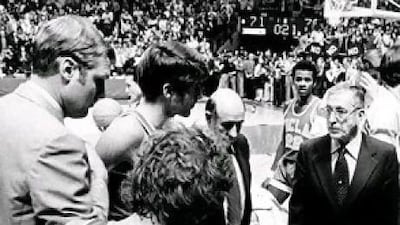I have just finished reading the biography Wooden - A Lifetime of Observations and Reflections On and Off the Court and was fascinated by how the basketball coach John Wooden accomplished unrivalled success by focusing his team on being the best. It is apparent that what separated his success from all the other great coaches was his relentless pursuit of perfection.
He coached the UCLA basketball team from 1948 to 1975, becoming one of the most successful college coaches. His accolades include 10 national championships, seven of them in consecutive years, undefeated seasons, and an 88-game winning streak. But what is truly remarkable is that he inherited an abysmal team, fashioned an instant turnaround and sustained the success until his retirement.
This brings us to his leadership insight and understanding of success.
During Wooden's sophomore year in high school, his maths teacher instructed his pupils to write a paper defining success for homework one day. Long after this assignment was turned in and for years to come, Wooden continued to think hard about this subject until 1934, when he pinned down his own definition of success.
Success is peace of mind that is the direct result of self-satisfaction in knowing you did your utmost to become the best you are capable of.
The foundation of success is that you should do your very best all the time. And anything stemming from it - fame, fortune and trophies - is a by-product. The same is true in business as in athletics - the focus every day should be employees doing their very best, not trying to just get by with what is good enough.
Then the leader's job becomes helping the team succeed by achieving their personal best. This requires improving a little each day until big things happen. Not tomorrow, not the next day, but eventually a big gain is made by small improvements every day.
Coach Wooden charged his players with trying to improve a little each day, trying to close in on becoming their best. He expected them to give everything they had in trying to reach perfection. "We won't reach 120 per cent or 110 per cent, but how close to 100 per cent of our potential can we reach?" was the goal. When individuals are sincerely motivated to take up that challenge, the results can be astonishing.
Don't look for big improvements right away. Seek small improvements one day at a time. That is the only way it happens - and when it does happen it lasts.
Leaders are not the same as coaches in all things, but we are all the same in having the opportunity to make the most of what we have. The ultimate challenge for leaders is to help their team along the way in becoming the best.
As a leader, like a coach, the practical advice in instructing employees to achieve their best is to be clear about your expectations, remove distractions, constantly communicate the goal, relentlessly measure and give feedback on the effort, and motivate the team. This is what Coach Wooden did to achieve success. Leaders who follow his example will also delight in seeing their team achieve stellar results.
Tommy Weir is an authority on fast-growth and emerging-market leadership, an adviser and the author of The CEO Shift. He is the founder of the Emerging Markets Leadership Center

